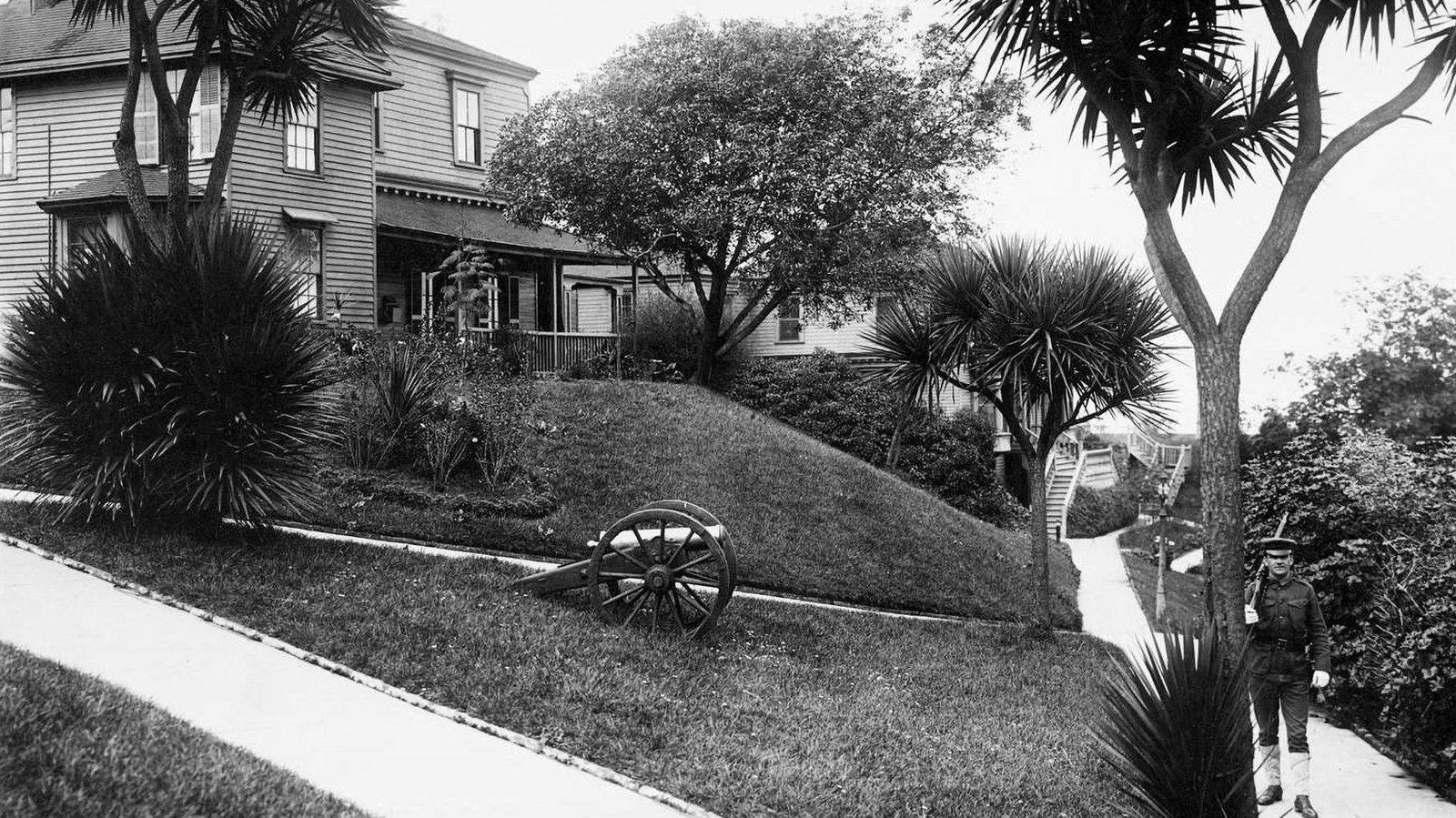Last updated: March 2, 2021
Place
The Anti-Slavery Movement at Black Point

On your right is Quarters 2, the Brooks House and on your left is Quarters 3, the Haskell House. Please do not proceed past the top of the driveway entrance as these buildings are private residences. The Leonard Haskell residence was the place of U.S. Senator Broderick's untimely death.
The Gold Rush attracted Southerners who supported slavery, Northerners who were against slavery, free African-American settlers, seeking their fortunes, as well as enslaved African-Americans, who were forced to dig for their owners' benefit. As new states were added to the union, Congress tried to achieve a balance by carefully admitting an equal number of slave states and free states.
After much bitter national debate, California entered as a free-state, part of the so-called Compromise of 1850. However, its vague antislavery constitution was open for extensive interpretation. The Broderick-Terry Duel, an important chapter of the antislavery movement, is associated with the Black Point community. During the 1850s, the people living here were openly hostile to secession and slavery. They politically supported David Broderick, a self-made man opposed to slavery, in his effort to become California's U.S. Senator. In 1859, after Broderick responded to verbal abuse from his political opponent, California State Supreme Court Justice David S. Terry, Terry challenged him to a duel.
On September 13, 1859, the Broderick - Terry duel commenced at Lake Merced, south of the city. After Broderick's gun misfired, Terry shot Broderick and wounded him severely. After his friends rushed him to Haskell's Black Point home, Broderick died three days later, after reportedly saying "They killed me because I am opposed to the extension of slavery and a corrupt administration."
